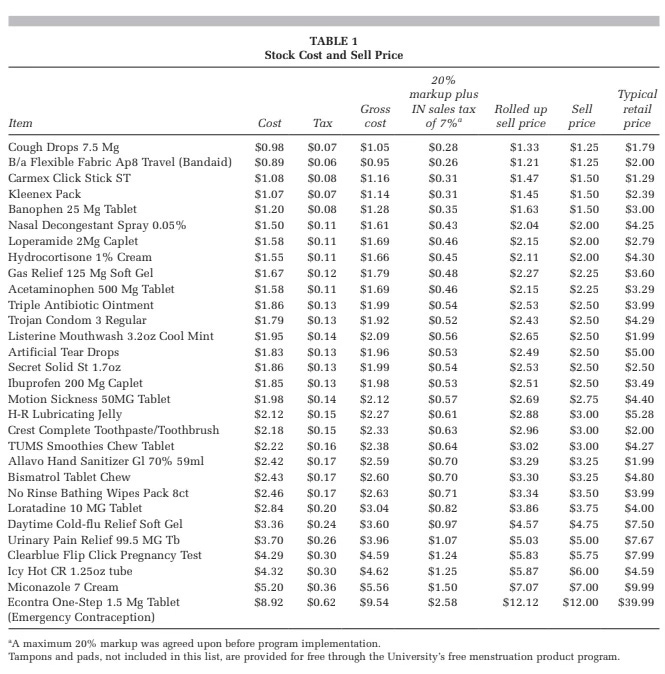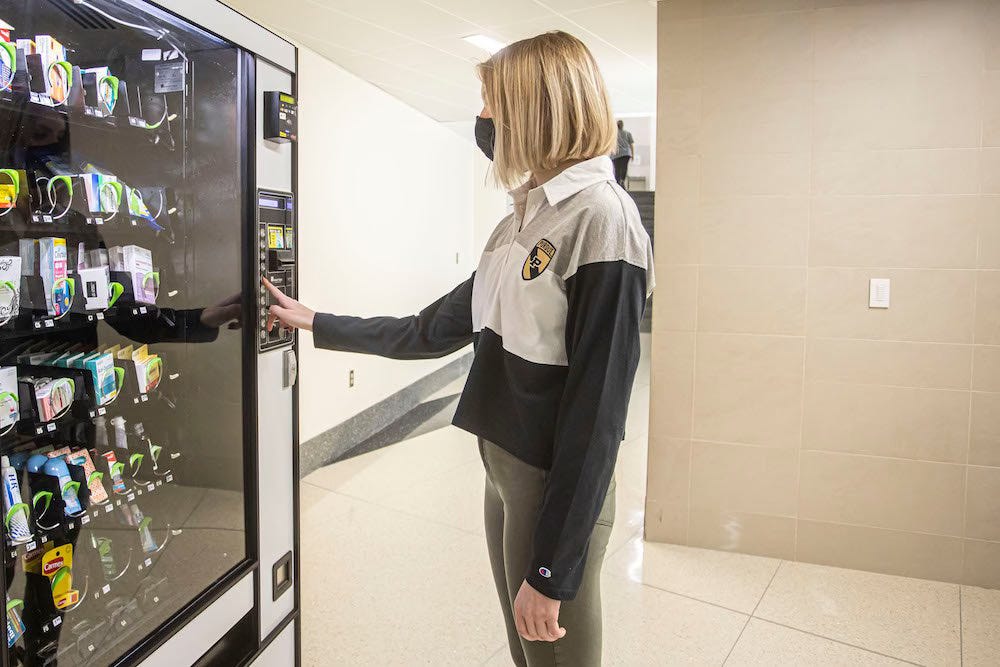Happy 1st of August to you!
(Though—and please, don’t mention this to anyone else—I’m writing this to you on Thursday, July 25th.)
This story squeaked in under the wire for my vacation deadline. At the risk of becoming irrelevant, obsolete, and un-algorithmic, if I haven’t already been all those things, I’ll be taking August off from podcast production to rest my brain a little and to celebrate some great family occasions.*
Without further ado, here is Episode 5:
Meet the Purdue U Vending Machine Crew
In Episode 4, policy analyst Kirsten Moore explained why it took so dang long for emergency contraception (a.k.a. the morning-after pill, or Plan B) to become available over the counter.
The Plan B victory Kirsten and her colleagues won was epic. But it wasn’t the end of the story.
In this case, having Plan B available didn’t necessarily make it accessible. The reasons for this can be many: pharmacists and pharmacies might not have kept up with the changing age restrictions and categorization of Plan B over the years. They may choose to continue keeping it behind the counter instead of out on the shelves. And its cost, often around fifty bucks, is prohibitive to many.
Then there’s the fact that as many as 40% of counties in the U.S. don’t have a pharmacy within 15 minutes—and unsurprisingly, these “pharmacy deserts” are more likely to be in communities of color.

But on a research trip in Italy (get a feel for these trips on Insta), Dr. Andrea DeMaria noticed something very unusual. The pharmacies all seemed to have installed these sidewalk-accessible vending machines that were powered on and available 24/7, long after the pharmacists had gone home. She began researching how local residents used them, and realized that they were not only convenient, they offered some people a welcome bit of privacy.
She thought: We could do that back home.
Together with her research assistants and an on-campus student consultancy, she crafted a proposal, and the university enthusiastically agreed. Their machines could sell deodorant, decongestant, Tums, toothpaste, Covid tests, condoms, and Plan B. In some ways like the Covid tests, Plan B is a time-sensitive healthcare item. When you need it, you need it now. (Emergency contraception works better at preventing conception the sooner it’s taken.)
What’s more, because Purdue has a pharmacy school, the university could offer these medications nearly at cost. A small markup pays the university’s contracted vending machine provider to stock and maintain them. (Pads and tampons are offered for free through another campus program.)
The vending machine’s most expensive item is Plan B … at $12. And it’s also their best-seller.
Purdue quickly went from having 2 vending machines on campus to having 8.
They’re continually trying to learn from and improve their program—but they’re also making a point of letting other universities know what they’ve done and how they’ve done it. After all, Purdue resides in conservative Indiana, which was one of the states that moved to ban abortion right after Dobbs.
That’s why their research papers detail the steps they took to set up their program, and why they go to conferences and give presentations telling their story, and are reaching out to other Big 10 schools to get them excited about the initiative, too.
Butler University has already followed their lead.
I hope you’ll listen to the episode and hear from students (likely now graduates) Haley, Sophia, and Zoe yourself.
I was so impressed with their professionalism and collegiality—the episode probably doesn’t convey the full extent to which they acknowledged and appreciated each person’s work on the project, without shying away from discussing their own leadership and accomplishments. It was a real “the kids are all right” moment for this elder millennial. 🥲
Extra links & info
Campus reporting: Group hopes to put pharmaceutical vending machines in every dorm
Interdisciplinary Women’s Reproductive Health Collaborative at Purdue on Instagram
The Guttmacher Institute on Indiana’s abortion policies after Roe













Share this post